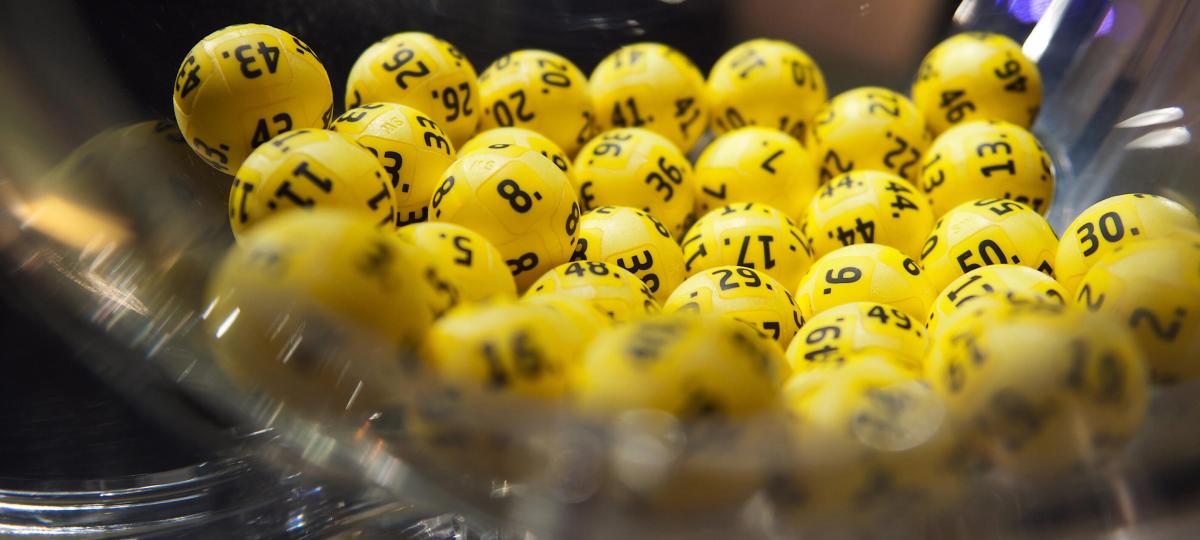« Be kind to your child, but hard for the eating disorder. » How do you do that if psychological help are not forthcoming?
:format(webp)/s3/static.nrc.nl/images/gn4/stripped/data127345826-898e67.jpg)
Daphne’s daughter had a serious eating disorder at the age of thirteen. For almost a year, the single mother sat at the kitchen table for twelve hours a day, opposite a child who hardly dared to eat. « Sometimes my daughter was screaming and vibrating on the floor, » she says. « I sometimes thought: fuck, Why do I have to do this? Can anyone take it over? ”
Treaters are increasingly seeing young children with anorexia nervosa, sometimes they are less than ten years old. The disorder is characterized by very little food and great fear of weight gain. Exactly how many children are involved is unclear. Eating disorders in minors are not registered nationally. Psychiatrist Annelies van Eeden collected data from forty general practices throughout the country for her PhD research at the University of Groningen. She estimates that in the Netherlands the number of girls aged ten to fourteen with anorexia between 1985 and 2019 is more than quadrupled: from 9 to 39 cases per 100,000 girls.
Unlike older patients, young children are still strongly intertwined with family life, child psychiatrist Gwen Dieleman (Erasmus MC) explains. This makes them more susceptible to structure and limit. « Eating independently again often does not work, » she says. That is why parents must determine what, when, how often and how much is eaten. « As with a toddler, » pediatrician Nathalie Schrijver-Levie (LUMC) clarifies.
In practice, more and more parents are becoming a co -handler of their child. While they rarely understand the disease, let alone how to treat it. NRC Parents and practitioners spoke about what it is like to bear that responsibility.
Brain
« The misconception of many parents is that Anorexia is a weight disease, » says child psychiatrist Miranda Fredriks (Amsterdam UMC). Many think it is a gone to lose weight and that children just have to eat again. But Anorexia is not a dietary choice, she emphasizes. It is a mental illness that comes across and sees patients. « The eating disorders are so strong, they can almost be compared to delusions in a psychosis, » says Fredriks. « A mindfuck From your brain. Your perception and thoughts are taken over by the disorder. » The children she sees sometimes say that they would rather die than eat.
Read also
Strong increase in anorexia in girls
« We don’t recognize our child back, » Fredriks often hears in the treatment room, followed by stories about swearing, or about fathers and mothers trying to pull their child to the kitchen table at the arm. « When I had just learned that my daughter had an eating disorder, I mainly felt despair. I thought I was going to lose my child. » says Floor. Her daughter was diagnosed at the age of eleven. « At that time I did not know that the eating disorder was going to ‘fight back’ if I showed my stress when she did not ate. Then she was screaming and bleeding opposite me. »
An eating disorder almost never stands on its own, mother Daphne now knows: « I sometimes compare anorexia with addiction. If you are addicted to alcohol, most of them understand that flight behavior is for (psychological) problems. With anorexia that is also the case. Not eating is a way of dealing with underlying pain. »
Her daughter appeared to have autism and had difficulty with the amount of incentives when daily life after the coronac crisis started again. Where the outside world was unpredictable, not eating did not offer a sense of control.
In addition to autism, practitioners see traumas passing by, such as divorces or being bullied, ADHD, a social anxiety disorder or puberty that starts at a younger age. Genetic sensitivity and social media – with an endless stream of waste tips and slim ideal images – are also mentioned. With the comment that both rarely can explain anorexia in themselves. They can aggravate or fuel the disorder.
Crucial
There is still the idea that children with anorexia have to go to a clinic. That is no longer the standard approach, saying practitioners. « In big letters above this article should be: we do not do the treatment of an eating disorder in children in a clinic, » says Schrijver-Levie. « It takes place at home. Only if it really doesn’t work there, do we get out. »
In clinics, young people can encourage each other to lose weight and long -term admission is often disruptive. « For children it can feel like they are being abandoned by their parents, » says Dieleman. Moreover, the child must ultimately be able to eat normally again normally. « That is why we want to let normal life continue as much as possible during treatment. »
That does not make good mental health care guidance, says Ramón Lindauer, chairman of the child and adolescent psychiatry department of the Dutch Association for Psychiatry. « The somatic care, which is often needed for the weighted bodies, can usually start quickly through the doctor, pediatrician or dietician. But psychological care often takes months to six months. »
While parents learn to understand and support their child there, he knows. He describes the period between diagnosis and psychological treatment as a time when many of them feel powerless. « Those months felt like I lost as a parent from the clock, » Floor recalls. « The doctor did get a list of what she should eat, but my daughter ate less and less and continued to lose weight. »
That long waiting time is the result of several factors, says Lindauer. In addition to a dire staff shortage, the way in which the youth mental health care is organized. Since 2015, the responsibility has been with municipalities. For that, it was shared by health insurers. « Unlike a national scheme, you now see that municipalities purchase great care. That makes access to treatment for one child much slower and more uncertain than for another, » says Lindauer. Moreover, decentralization was accompanied by an annual cut of around 450 million euros for three years.
He emphasizes that national politics now acknowledges that access to psychological help with anorexia is too often. A few years ago, the Youth Reformation Agenda proposed to allow municipalities to collaborate regionally in the purchase of high -specialist mental health care, including anorexiazorg, in order to put an end to fragmentation. Last month the House of Representatives agreed with that proposal. Concrete implementation data are missing.
Sample
Only when Daphne, a few months after the diagnosis of her daughter, talked to a colleague about his partner with depression did she begin to understand her daughter’s behavior. « She told me: you have to see it as two people. Sometimes I have to deal with my husband, and sometimes with the depression. Then I thought: okay, so you have my daughter, and you have the eating disorder. » Together with her daughter, she decided to call the eating disorder ‘Het Monster’.
Parents get the same thing from almost every practitioner: be kind to your child, and hard for the disorder. But what that means, they gradually learn. « You have to understand that the anger and panic around eating moments do not come from your child, but from the eating disorder that has been enforced in between, » says Floor. She noticed that staying calm helped most. « If I stayed calm, my daughter could lean on me. She couldn’t do that in herself. At those moments she was taken over by the disorder. For her it was as if I was sending her a burning house six times a day. »
Read also
Anorexia is an insane disease that is the middle between coercion and addiction
« At one point I could see when the eating disorder took over my daughter, » says Daphne. She describes how it was sometimes subtly noticeable in a can that went down, leaning back and crossing arms. And in other cases she was trembling on the floor. « Then I knew: I can’t have a pedagogical conversation with her now. » What she did was lay on the floor next to her daughter. Stroking the back. Just as long until she had her plate empty. And at the end of the day, Daphne went to bed at the end of the day, because the tune started again the next day.
In the end the Daphnes daughter took three and a half years to recover – that seems long, but is not exceptional for anorexia. In those years, Daphne says, she « pulled open the whole truck box ». What helped her daughter was to keep the attention away from the board as much as possible during dinner. It meant rummikupen at the table and shopping when the plate was empty. « We have been shopping. From toy to iPads. »
To protect the privacy of the children, the parents of the parents are not mentioned in the article.

:format(webp)/s3/static.nrc.nl/bvhw/files/2023/06/data101821889-b813f4.jpg)
/s3/static.nrc.nl/images/gn4/stripped/data133181939-32b422.jpg)
:format(webp)/s3/static.nrc.nl/images/gn4/stripped/data133133129-234961.jpg)
/s3/static.nrc.nl/images/gn4/data133174840-ab5668.jpg)




